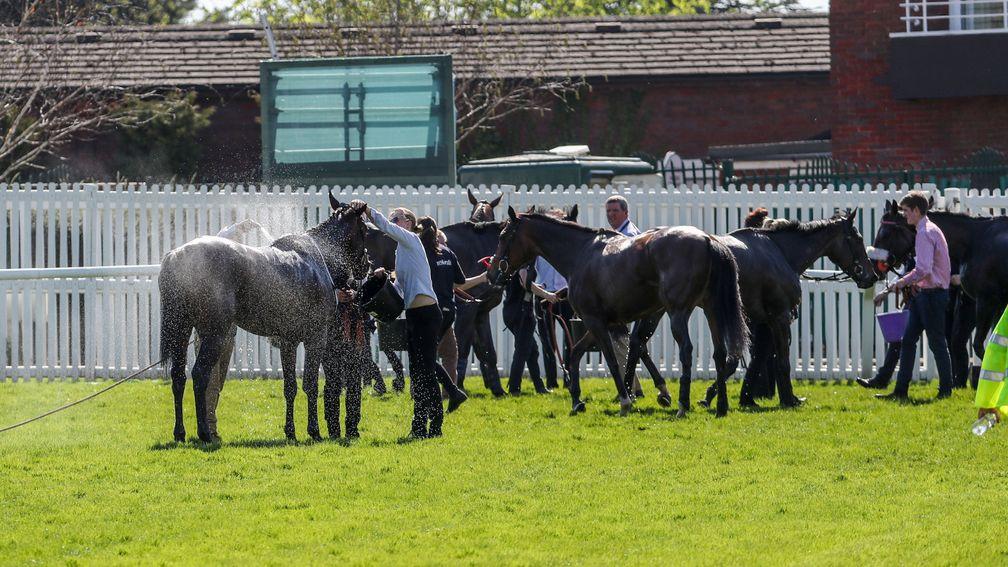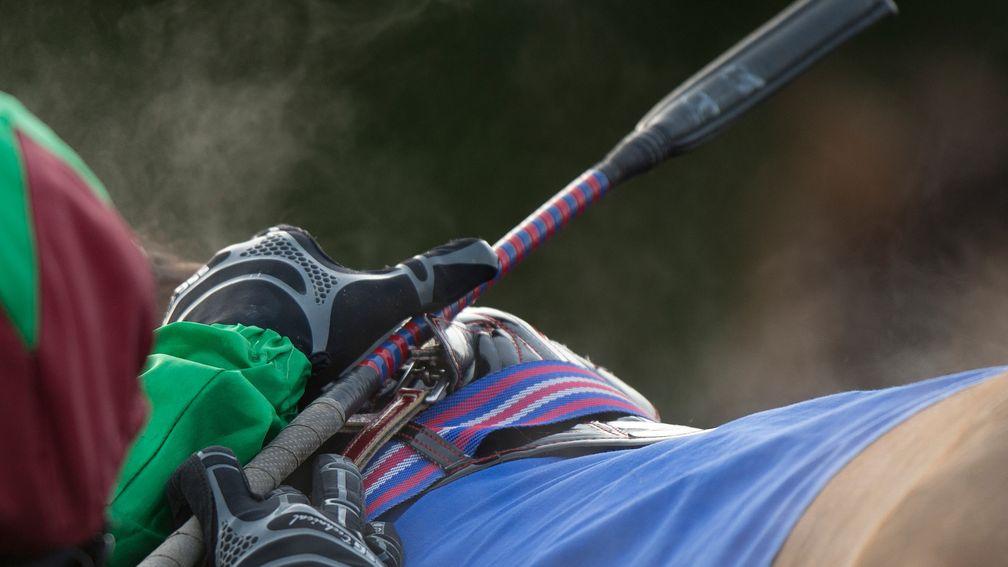Politicians have racing in their cross-hairs and the sport must wake up

This content has been made free as a sample – Tom Kerr's weekly column is available online to members from 6pm every Thursday, and is just one of the many benefits of joining the Racing Post Members' Club. Click here for your one-month free trial.
Two weeks ago a collection of cross-party MPs gathered in Westminster Hall to consider an e-petition calling for a new independent body for the protection of racehorses. The petition, which garnered more than 100,000 supporters (the threshold for a parliamentary debate), had been organised by Animal Aid, an extreme animal rights organisation that seeks the end of racing in Britain.
The debate that followed officially concerned whether the BHA should continue to regulate the welfare of racehorses, an issue that has profound implications for horseracing in Britain, and naturally the media coverage within the racing press mainly focused on that topic.
However, the substance and tenor of the MPs' discussion was arguably the more significant part of the debate, at least in terms of what the future holds for racing. It was striking, therefore, to note that respondents from all sides of the debate, including from government and long-standing supporters of the sport, demanded faster and greater improvements on welfare from racing.
Consider the comments of David Rutley, parliamentary under-secretary of state for Environment, Food and Rural Affairs, who responded for the government. While supportive of the BHA's continuing role regulating the sport, he described each equine death recorded in racing as "absolutely tragic" and repeatedly emphasised the necessity of racing reducing its fatality rate.
He referred to the forthcoming BHA review of six deaths at this year's Cheltenham Festival, due to be published next month, calling it "an important vehicle to understand [the BHA's] commitment and ambition" to reducing fatalities and "an opportunity to look at what more can be done at the Grand National". In other words, the government expects the review to make substantive recommendations to reduce fatalities.
On the whip, too, the government representative took a far stronger line than might have been anticipated. While acknowledging the sport's "strict rules", he added that "lessons should be learned from places such as Norway", where the whip is essentially banned. Noting a 40 per cent reduction of whip use in racing between 2012 and 2015, Rutley added: "Let's go further down that track."
These were striking comments from a representative of a Conservative government, but they were tame in comparison to the remarks made by Labour's spokesman Luke Pollard, who represents a party leadership that might never hold the reins of power but equally could sweep into Number 10 within months should Theresa May's Tory administration succumb to its Brexit disarray.
Pollard acknowledged improvements on fatality rates, but demanded more. "If we are to legitimise the BHA continuing to govern the regulatory approach, when will [the fatality rate of 0.2 per cent] be halved? When will we get to 0.1 per cent – by what date? What steps will be taken to get there? What happens if we do not get there? When will the target be zero?"
Let me draw your attention to that last sentence. Labour is suggesting racing's target fatality rate should be zero. No deaths. As everyone in the sport knows, that is not realistic. It is an impossible target, one that is not supposed to be hit but inevitably missed and then used to justify the punitive action which follows.

On the whip, too, Labour's spokesman put forward a hardline position: "It is important that whips are used with minimal force and on minimal occasions, and only for genuine safety purposes." It was put to the hall that the padded whip used in racing causes horses no pain; that fact, whether it was believed or not, made no discernible impression on the debate.
All this was necessary, Pollard said, because the "social contract" whereby society permits the use of animals in sport was changing. "Consumers are more demanding, and welfare standards are rightly being pushed higher in response," he said.
I highlight these comments – and emphasise there is far less open water between Labour and Conservative positions than might have been expected – because they represent a shifting of the political tectonic plates as far as racing is concerned. Suddenly, fatalities and the whip have become issues on which both major parties have stated expectations of the sport. If racing fails to meet those expectations – like how bookmakers failed to rise to the challenge of addressing concerns over FOBTs – it can expect a political response.
That response would likely manifest as the end of racing's ability to self-regulate on welfare issues. Decisions would be imposed on the sport by an outside body with little or no obligation to consider the sport's wishes or the expertise of racing professionals. To such a body, drastic changes to racing in the name of welfare might seem reasonable and necessary. They may not just look to Norway, where the whip is banned, but to Australia, where jump racing is banned in some states and severely restricted in others.
How does racing avoid this fate? If a radical Labour party, such as the one led by Jeremy Corbyn, comes to power there may be no avoiding it save hoping that the sport escapes attention. But the Westminster Hall debate demonstrated that even a Conservative administration will consider political answers to strengthening welfare protections in racing unless the sport continues to demonstrate both resolve and results.
There are two lessons that should be derived from this. The first is the response of some in racing, including those who should really know better, to strike defiant poses whenever welfare concerns are raised by the outside world will come to look like the braggadocio of the petty populist when powerful forces come calling.
The most one-sided war in history was the Anglo-Zanzibar War of 1896, which lasted all of 38 minutes; safe to say that skirmish will look a Waterloo by comparison if racing attempts to defy a Westminster minded to impose its will on the sport.
The second is that racing's future really is in racing's own hands. The BHA, as several speeches at the parliamentary debate made clear, understands the urgency and severity of the political challenge to the sport over welfare. The regulator said this week the Cheltenham review, which will be read with interest in Westminster, will include recommendations intended to enhance welfare at Cheltenham and across jump racing. Over the coming years we can expect further reforms to jump racing and use of the whip. Inevitably, many of these will be controversial with sections of the sport.
The sport's response to these changes will determine its future. Recent history, such as the whip review of 2011, suggests radical reforms may be greeted with anger and outright revolt by some. This could be decisive. Racing might not have the capacity to take on Westminster, but it can topple the BHA's current leadership if it wishes. That would be a politically calamitous outcome. It would demonstrate that the sport is unable or unwilling to take the strong action required to assuage the concerns of MPs across the political spectrum. Politicians would surely then take matters into their own hands.
In his closing address at the Westminster Hall debate, the Conservative spokesman said that the welfare of racehorses would remain at the top of his agenda. "I hope that the BHA is listening to this debate," he said. For the sake of the sport, it's important racing was listening too.
Cumani a man of courage and principle

Luca Cumani, who announced his decision to retire from training at the end of this year earlier this week, is held in universally high regard. His 43-year career has not just demonstrated his skill as a trainer, but his fundamental decency.
One episode in particular stands out for me. In 2015, Sheikh Mohammed Obaid moved 35 horses from Cumani's in a devastating blow to the yard, where he was the pre-eminent patron. The following year Sheikh Obaid revealed why he had moved the horses: he had wished to run Postponed in the Irish Champion Stakes, but Cumani had refused, saying the horse was not ready.
"I am military," Sheikh Obaid explained. "If I give someone an order, he has to take my order. If I tell you that you have to run in this race, you have to run."
Naturally, the loss of so many horses had a terrible impact on Cumani's business. He lost almost 40 per cent of his horses and his prize-money haul fell 65 per cent in 2016. Logically that should have led to downsizing, but Cumani made no staff redundant.
"When this happens it's not the fault of the staff," he told the Racing Post earlier this year. "I wouldn't want to take it out on them or make them pay for it. The trainer therefore takes the hit."
Cumani not only stood up to a powerful owner, decimating his yard, he determined to shield his employees from the considerable financial consequences. It was an act of deep courage and principle. There are few men cut from such cloth.
Members can read the latest exclusive interviews, news analysis and comment available from 6pm daily on racingpost.com
Published on inComment
Last updated
- We know that times are tight - but racecourses really do need to step up and improve outdated weighing rooms
- The budget has heaped even more trouble on racing - and I fear many trainers will now decide the numbers just don't add up
- Why I think Cheltenham Festival handicaps need to change - JP McManus writes exclusively for the Racing Post
- No-one has ever emerged from the womb wearing a trilby - racing's future survival hangs on pursuing a young audience
- Four score and ten just a number to Peter Harris as July Cup triumph shows there's more to the elderly than medical conditions
- We know that times are tight - but racecourses really do need to step up and improve outdated weighing rooms
- The budget has heaped even more trouble on racing - and I fear many trainers will now decide the numbers just don't add up
- Why I think Cheltenham Festival handicaps need to change - JP McManus writes exclusively for the Racing Post
- No-one has ever emerged from the womb wearing a trilby - racing's future survival hangs on pursuing a young audience
- Four score and ten just a number to Peter Harris as July Cup triumph shows there's more to the elderly than medical conditions